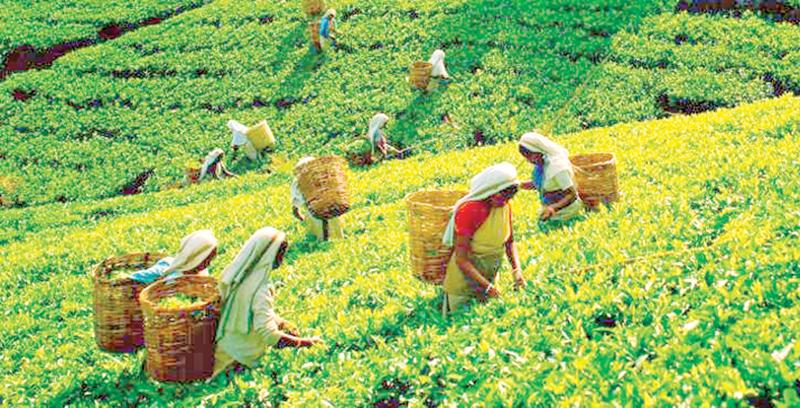
The International Fund for Agriculture Development (IFAD) has provided assistance to the tune of US$ 2,298 million for agricultural development in Sri Lanka since 1978, and it expects to increase the number of beneficiary households from 85,000 to over 90,000 using the ongoing Smallholder Tea and Rubber Revitalisation (STaRR) projects under the Ministry of Plantations, an official of IFAD told journalists last week.
Elaborating on the work IFAD has undertaken to improve best practices in agriculture in Sri Lanka, increase resilience, create access to markets and help smallholder farmers to be large scale commercial farmers Country Program Manger, Asia Pacific Division Dr. Tarek Kotb said. Sri Lanka has the potential to produce for markets in Latin America, Europe and the Asian region. However, the contribution from agriculture to exports and the GDP, is dismal. Agriculture accounts for around 9% of the GDP and around 27 % of the total exports.
“Sri Lanka needs to diversify its value chain and bring in new technology to produce high quality products for the global markets,” Dr. Kotb said.
Replanting of tea in six districts such as Galle, Matara, Ratnapura, Kandy, Nuwera Eliya and Baduula and planting of rubber in non traditional districts such as Moneragala and Ampara have been launched under the STaRR project.
STaRR project Director Janaka Amarasinghe said the project aims at cultivating tea on 5,500 hectares and rubber on 3,000 hectares.
Replanting is essential as most of the tea plants are over 20 years old, and producing a low yield.
An IFAD official said another objective of the project is to involve youth and women to be entrepreneurs generating income for their families and contributing to rural economic growth.
IFAD has provided US$ 65 million for the two projects, (estimated to cost US$ 170 million overall), with the rest being funded by the government.
“The IFAD is pleased with the work done through the project. However, it is not easy as there are many limitations that need to be addressed. We monitor the progress of the projects on a regular basis through our missions,” Dr. Kotb said.
The six-year project which commenced in 2017 also aims at introducing new technology and systems to improve yield and develop the tea and rubber smallholder sectors through banks and private public partnerships (PPP).
IFAD supports smallholder agri-business partnership programs across the island in high poverty areas to build market linkages and value chains as PPP initiatives.
“The Kithul project which communed with 100 farmers is expected to scale up to 1,000 in Ratnapura, and exports jaggery based products to Germany.
The backyard poultry program in Kamburupitiya, Matara is another success story, where farmers directly sell meat to The Hilton hotel Colombo,” an IFAD official said.
